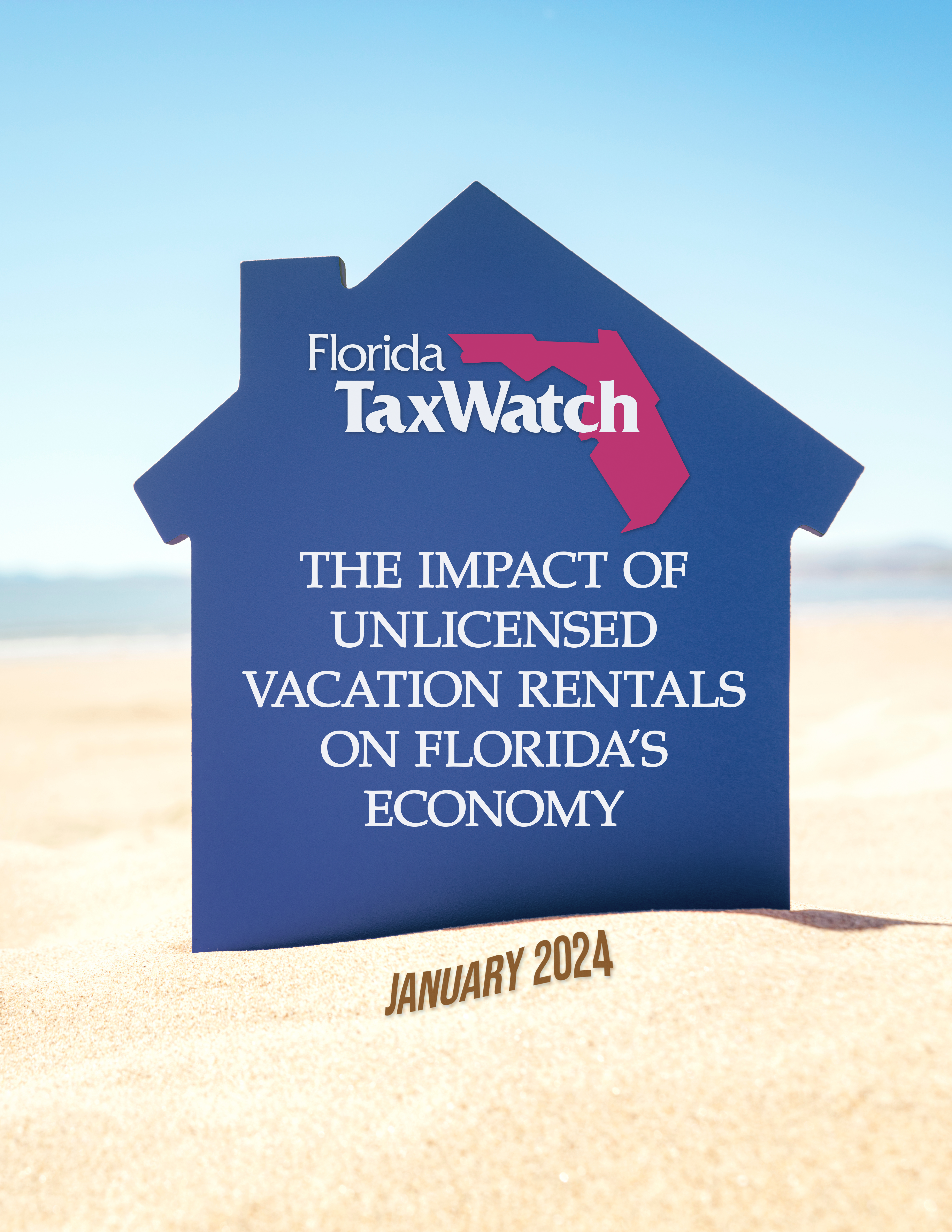The Impact of Unlicensed Vacation Rentals on Florida's Economy
 "Unlicensed Vacation Rentals: An Analysis of Florida's Tourism-Driven Economy," presents a comprehensive investigation into the burgeoning issue of unlicensed vacation rentals in Florida and their extensive impact on the state's economy, especially its tourism sector.
"Unlicensed Vacation Rentals: An Analysis of Florida's Tourism-Driven Economy," presents a comprehensive investigation into the burgeoning issue of unlicensed vacation rentals in Florida and their extensive impact on the state's economy, especially its tourism sector.
The paper begins by detailing the context of Florida's tourism landscape, underscoring the state's status as a prime tourist destination and the corresponding rise in the vacation rental market. A significant revelation of the study is the substantial proportion of Florida’s temporary public lodging units, as of 2022, that were vacation rentals operating without proper licensing. This unregulated segment of the market presents several challenges, most notably tax evasion and the creation of an unfair competitive environment for licensed lodging establishments.
A key focus of the paper is the economic implications of these unlicensed rentals. The avoidance of tax collection and remittance by these rentals is highlighted as a major concern, not only for its direct fiscal repercussions but also for the broader implications on the integrity and fairness of the state's taxation system. Additionally, the paper discusses the competitive disadvantages that licensed lodgings face, being subject to regulatory compliances and tax obligations that unlicensed rentals circumvent.
Furthermore, the paper goes beyond diagnosing the issue and proposes a series of recommendations to tackle the challenges posed by unlicensed vacation rentals. These include stricter enforcement of licensing regulations, improved transparency in rental operations, and more efficient tax collection mechanisms. The recommendations advocate for a balanced approach that respects the entrepreneurial spirit of the vacation rental market while ensuring compliance and fairness.
The methodology of this Florida TaxWatch report can also be found below as a separate downloadable document. It employs a detailed data analysis approach using information sourced from rental platforms, regulatory bodies, and state databases. This empirical approach adds substantial credibility to the findings, making the study a valuable asset for stakeholders in the tourism industry.
This paper serves as a crucial call to action for policymakers, business owners, and regulatory authorities, emphasizing the need to reevaluate regulatory practices in the rapidly evolving digital economy. It makes a significant contribution to the discourse on the economic and regulatory aspects of tourism in Florida, offering insights that could influence future policies and business practices in the sector.